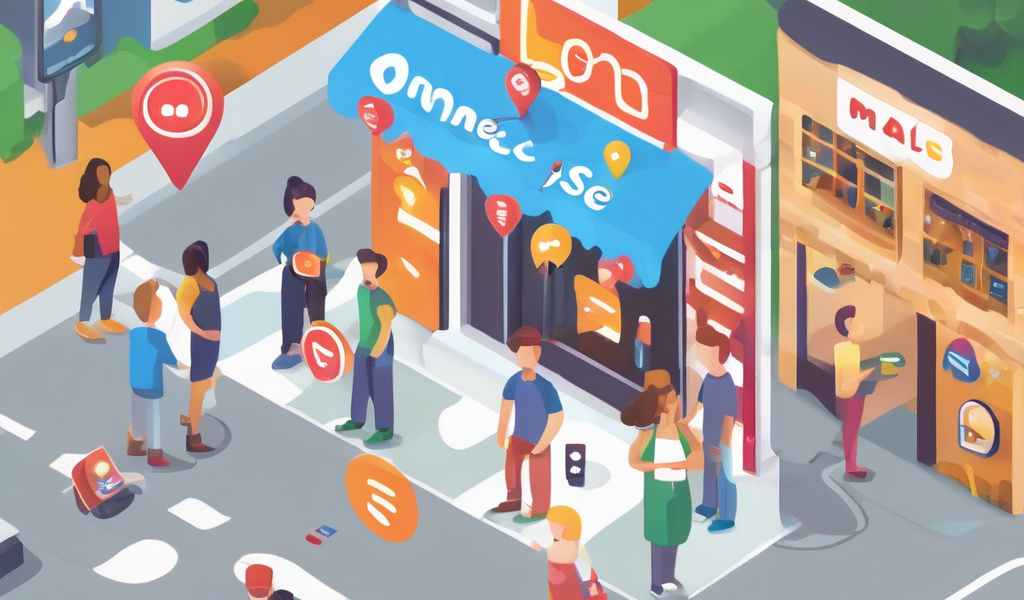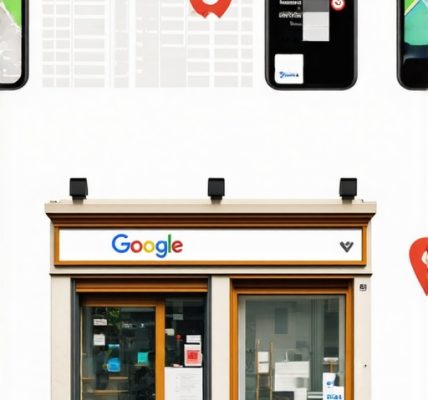Understanding Hyperlocal SEO and Its Importance for Google Maps
In today’s digital landscape, local businesses are increasingly leveraging hyperlocal SEO strategies to enhance their visibility on platforms like Google Maps. Hyperlocal SEO focuses on optimizing your online presence to attract a specific local audience, ensuring that your business appears prominently when users search for nearby services. This approach is crucial as it caters to users who are often ready to make a purchase or visit a location immediately.
By implementing effective hyperlocal SEO techniques, businesses can significantly improve their chances of appearing in the coveted Google Local 3-Pack. This feature displays the top three local businesses relevant to a user’s search query, making it essential for driving foot traffic and boosting online engagement.
Key Strategies for Implementing Hyperlocal SEO
To harness the power of hyperlocal SEO for Google Maps success, consider the following strategies:
1. Optimize Your Google Business Profile
Your Google Business Profile is the cornerstone of your hyperlocal SEO efforts. Ensure that all relevant information is complete and accurate, including your business name, address, phone number, and operating hours. Engaging content such as high-quality images, descriptions, and posts can also enhance your profile’s appeal.
2. Focus on Local Keywords
Incorporate local keywords into your website content and Google Business Profile. Use tools to identify keywords that your target audience frequently searches for, such as “best coffee shop in [your neighborhood]” or “top-rated plumber near me.” By doing so, you not only increase your chances of ranking higher in search results but also attract more relevant traffic.
3. Encourage Customer Reviews
Customer reviews play a significant role in local search rankings. Encourage satisfied customers to leave positive reviews on your Google Business Profile as well as on platforms like Yelp and Facebook. Not only do reviews enhance your credibility, but they also contribute to improved visibility. For tips on generating reviews effectively, check out our post on GMB review generation best practices.
4. Leverage Local Citations
Ensure that your business is listed accurately across various online directories, such as Yellow Pages, Yelp, and local chambers of commerce. Consistent citations help search engines validate your business’s location and relevance, positively impacting your local rankings. For a deeper dive into citation management, explore our guide on GMB citation management best practices.
5. Create Localized Content
Develop content that resonates with your local audience. This could include blog posts about local events, partnerships with other local businesses, or community-focused initiatives. By positioning your brand as a local authority and engaging with your community, you’ll enhance your online presence and foster customer loyalty.
In summary, harnessing hyperlocal SEO for Google Maps success requires a strategic blend of profile optimization, local keyword usage, customer engagement, citation accuracy, and tailored content. By implementing these strategies, businesses can effectively improve their local search rankings and ultimately drive more traffic to their physical locations, ensuring they remain competitive in today’s dynamic marketplace. The next steps involve diving deeper into specific techniques and tools that can further enhance your hyperlocal SEO efforts.
Advanced Techniques for Boosting Your Hyperlocal SEO
Building upon the foundational strategies discussed earlier, there are additional advanced techniques that can further enhance your hyperlocal SEO efforts for Google Maps. These strategies not only refine your online presence but also help you stay ahead of the competition in your local market.
1. Optimize for Voice Search
With the rise of voice-activated devices, optimizing your content for voice search is becoming increasingly important. People tend to phrase their queries differently when speaking compared to typing. Incorporate natural language and question-based phrases into your content. For example, instead of focusing solely on the keyword “plumber in [your city],” consider optimizing for questions like “What is the best plumber near me?” This approach can significantly increase your chances of appearing in voice search results.
2. Utilize Google Posts
Google Posts allow businesses to share updates, offers, and events directly on their Google Business Profile. Regularly posting engaging content can enhance your visibility and attract potential customers. Ensure that your posts are relevant and feature strong calls to action. For more insights on creating effective posts, check our guide on improving Google Business performance with weekly posts.
3. Engage with Local Community Events
Participating in local events can boost your brand’s visibility and establish your business as a community leader. Sponsor local events, host workshops, or collaborate with other businesses to enhance your presence. Share these activities on your Google Business Profile and social media channels to attract local attention and drive foot traffic. Engaging with your community not only strengthens your brand image but also contributes positively to your local SEO.
4. Monitor and Respond to Reviews
Active engagement with customer reviews is crucial for maintaining a positive reputation. Regularly monitor reviews on your Google Business Profile and respond promptly to both positive and negative feedback. This not only shows potential customers that you value their opinions but also signals to search engines that your business is active and engaged. For tips on effectively managing customer reviews, explore our post on how reviews influence Google Maps rankings.
5. Implement Structured Data Markup
Structured data markup helps search engines understand your business’s information more accurately. By implementing schema markup on your website, you can improve your chances of appearing in rich snippets and enhance your local search visibility. Use local business schema to provide essential details such as your address, phone number, and business hours. For a comprehensive guide on this topic, check out our article on understanding local SEO for small businesses.
6. Analyze Your Competitors
Regularly analyzing your competitors can provide valuable insights into their strategies and help you identify areas for improvement. Look at their Google Business Profiles, customer reviews, and online presence to understand what works for them. Utilize tools like SEMrush or Ahrefs to gather data on their keyword strategies and backlink profiles. This information can inform your own hyperlocal SEO approach and help you stay competitive.
Conclusion and Next Steps
As you explore these advanced techniques for enhancing your hyperlocal SEO, remember that continuous improvement is key. Stay updated with the latest trends and adapt your strategies accordingly. In the next section, we will delve into specific tools and resources that can further aid your hyperlocal SEO initiatives and help you achieve lasting success on Google Maps.
Utilizing Social Media for Enhanced Local Engagement
Social media platforms offer a powerful avenue for enhancing your hyperlocal SEO efforts. By sharing localized content, engaging with your community, and promoting your Google Business Profile, you can drive more traffic to your website and improve your local search rankings. Tailor your messages to resonate with your local audience, showcasing your participation in community events or highlighting local partnerships.
1. Share Community-Focused Content
Creating and sharing content that highlights local events or news can position your business as a community leader. For instance, posting about a local charity event you’re sponsoring or sharing insights on local happenings can increase your brand visibility. This not only engages your audience but also encourages shares, further enhancing your reach.
2. Leverage User-Generated Content
Encourage your customers to share their experiences with your business on social media. User-generated content, such as photos or testimonials, can significantly boost your credibility and local SEO. Feature these posts on your own social channels and your Google Business Profile to build a sense of community and trust. For more on engaging effectively with customers, refer to our post on GMB engagement strategies.
Maximizing Local SEO with Google My Business Insights
Google My Business provides valuable insights that can help you refine your local SEO strategies. By analyzing how customers interact with your profile, you can identify trends and make informed decisions to boost your visibility.
1. Monitor Customer Actions
Review the data on how customers are finding your business, including search queries and actions taken on your listing, such as requests for directions or phone calls. Understanding these metrics can help you optimize your profile further and target specific keywords that customers are using to find your services. For an in-depth look at improving your Google Business Profile, check out how to optimize your Google Business listing effectively.
2. Analyze Customer Reviews and Feedback
Customer feedback is invaluable for fine-tuning your offerings. Use insights from reviews to identify areas for improvement and enhance customer satisfaction. Responding to reviews promptly also shows potential customers that you value their opinions and are committed to providing excellent service.
Crafting a Comprehensive Hyperlocal Content Strategy
A well-rounded content strategy is essential for maximizing your hyperlocal SEO efforts. This involves creating a diverse range of content that appeals to local consumers and addresses their needs.
1. Blog About Local Topics
Publishing blog posts that focus on local issues, events, or stories can enhance your credibility within the community. Topics could include local business spotlights, community event recaps, or guides to local attractions. This not only positions you as a local expert but also attracts organic traffic from local searches.
2. Optimize Your Content for Local Search
Incorporate local keywords throughout your blog posts and website content to improve your chances of ranking higher in local searches. Use tools to identify popular search terms in your area and integrate them naturally into your writing. For more techniques on keyword optimization, refer to our guide on GMB keyword research.
Conclusion of Techniques and Next Steps
As you implement these advanced techniques, stay attuned to the evolving landscape of hyperlocal SEO. In our next section, we will explore the best tools and resources available to further support your local SEO initiatives and ensure your business remains at the forefront of local search results.
Leveraging Analytics for Enhanced Hyperlocal SEO
To truly maximize your hyperlocal SEO efforts, leveraging analytics is essential. Understanding how customers interact with your online presence can provide valuable insights into areas that need improvement. Utilizing tools like Google Analytics and Google My Business Insights can help you track key performance indicators (KPIs) that inform your strategy.
1. Track User Behavior on Your Site
Monitoring user behavior on your website allows you to understand what content resonates most with your audience. Look for metrics such as average session duration and bounce rate to gauge engagement levels. For further optimization strategies, check our guide on improving Google Business performance with weekly posts.
2. Analyze Traffic Sources
Identifying where your traffic is coming from can help you allocate resources effectively. Determine if users are finding you through organic search, social media, or referrals. This information will guide your marketing efforts and improve your overall local search strategy.
Creating Engaging Local Content
Content is king, especially when it comes to local SEO. Engaging content tailored to your community not only helps with rankings but also establishes your business as a local authority.
1. Highlight Local Stories and Events
Creating blog posts or videos that spotlight local events, stories, or businesses can draw in local audiences. Sharing your experiences at local festivals or community initiatives enhances your connection with your audience while driving organic traffic. For more insights on local topics, explore our article on essential Google Maps SEO strategies for local impact.
2. Utilize Local Influencers
Partnering with local influencers can amplify your reach and credibility. Influencers can help promote your business through authentic content, driving their followers to your Google Business Profile. This not only enhances visibility but also builds trust in your brand.
Improving Your Local Link Building Strategies
Building local backlinks is a pivotal component of successful hyperlocal SEO. High-quality links from local websites can boost your credibility and search rankings.
1. Collaborate with Local Businesses
Engage in partnerships with other local businesses to create mutually beneficial content. This could be a joint blog post, a local event, or a community initiative. Such collaborations can result in backlinks and enhance your local online presence.
2. Get Listed in Local Directories
Ensure your business is listed in reputable local directories. Submitting your business to online directories not only improves visibility but also boosts your local SEO performance. For a comprehensive approach to citation management, check out our post on GMB citation management best practices.
Conclusion and Future Directions
As you refine your hyperlocal SEO strategies, remember that the landscape is always evolving. Regularly analyze your performance, stay updated with industry trends, and be adaptable in your approach. In our upcoming section, we will explore innovative tools that can further enhance your local SEO efforts, ensuring your business remains competitive in the ever-changing digital marketplace.
Frequently Asked Questions about Hyperlocal SEO
1. What is hyperlocal SEO?
Hyperlocal SEO is a specialized form of search engine optimization that focuses on optimizing a business’s online presence to attract customers in a specific local area. It involves strategies that enhance visibility in local search results, particularly on platforms like Google Maps.
2. How can I improve my business’s visibility on Google Maps?
To improve your visibility on Google Maps, optimize your Google Business Profile, encourage customer reviews, use local keywords, and create localized content that resonates with your target audience. Implementing these strategies can help you appear in the Google Local 3-Pack.
3. Why are customer reviews important for hyperlocal SEO?
Customer reviews are essential for hyperlocal SEO because they influence local search rankings. Positive reviews enhance your credibility and attract more potential customers, while also signaling to search engines that your business is relevant and trustworthy.
4. What role do local citations play in hyperlocal SEO?
Local citations are online mentions of your business name, address, and phone number (NAP). Consistent citations across various online directories help search engines verify your business’s location and relevance, positively impacting your local search rankings.
5. How can social media enhance my hyperlocal SEO efforts?
Social media can enhance your hyperlocal SEO by allowing you to share localized content, engage with your community, and promote your Google Business Profile. Tailored messages that resonate with local audiences can drive traffic and improve search rankings.
6. What is the importance of structured data markup for local SEO?
Structured data markup, or schema markup, helps search engines understand your business’s information more accurately. Implementing it can improve your chances of appearing in rich snippets and enhance your visibility in local search results.
7. How can I track the effectiveness of my hyperlocal SEO strategies?
You can track the effectiveness of your hyperlocal SEO strategies by analyzing metrics such as website traffic, user behavior, customer actions on your Google Business Profile, and customer feedback through reviews. Tools like Google Analytics and Google My Business Insights provide valuable data.
8. What are some tools for managing hyperlocal SEO?
Some effective tools for managing hyperlocal SEO include Google My Business, Moz Local, BrightLocal, and SEMrush. These tools help with citation management, keyword research, and monitoring local search performance.
9. How does voice search impact hyperlocal SEO?
Voice search impacts hyperlocal SEO by changing how users phrase their queries. Optimizing for natural language and question-based phrases can increase your chances of appearing in voice search results, which is becoming increasingly important as voice-activated devices gain popularity.
10. What are the best practices for creating localized content?
Best practices for creating localized content include focusing on local topics, incorporating local keywords, sharing community stories, and collaborating with local influencers. This content should resonate with your audience and address their specific needs and interests.
Authority Resources for Hyperlocal SEO
To further enhance your understanding of hyperlocal SEO, consider exploring the following trusted resources:
- Moz’s Local SEO Guide – A comprehensive guide covering essential aspects of local SEO, including strategies for improving visibility.
- Search Engine Land’s Local SEO Overview – An informative overview of local SEO, its importance, and actionable tips for businesses.
- Neil Patel’s Local SEO Strategies – Expert insights and strategies for optimizing local search presence effectively.
- BrightLocal’s Local SEO Learning Center – A resource hub with articles, guides, and tools focused on local SEO best practices.
- Yext’s Hyperlocal SEO Insights – A detailed look at hyperlocal SEO’s nuances and strategies for success.
Conclusion
In conclusion, mastering hyperlocal SEO is essential for businesses looking to enhance their visibility in local search results and attract nearby customers. By adopting the strategies and techniques outlined in this guide, including optimizing your Google Business Profile, engaging with your community, and leveraging local content, you can successfully boost your local rankings. As the digital landscape continues to evolve, staying informed and adapting your strategies will ensure that your business remains competitive in the ever-changing local marketplace.




